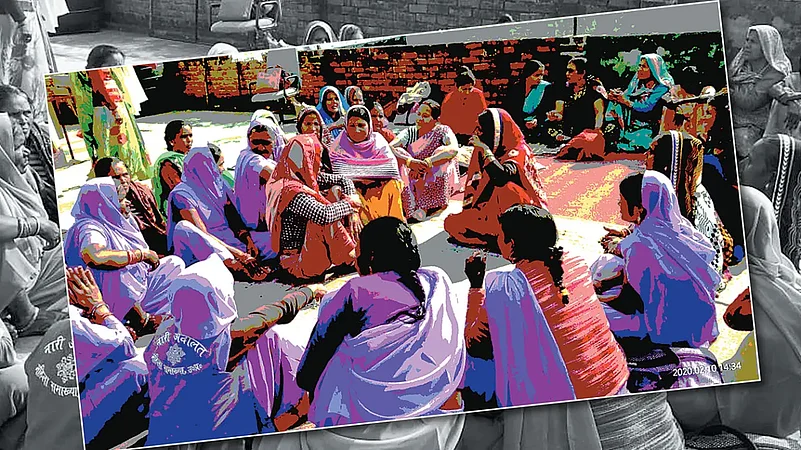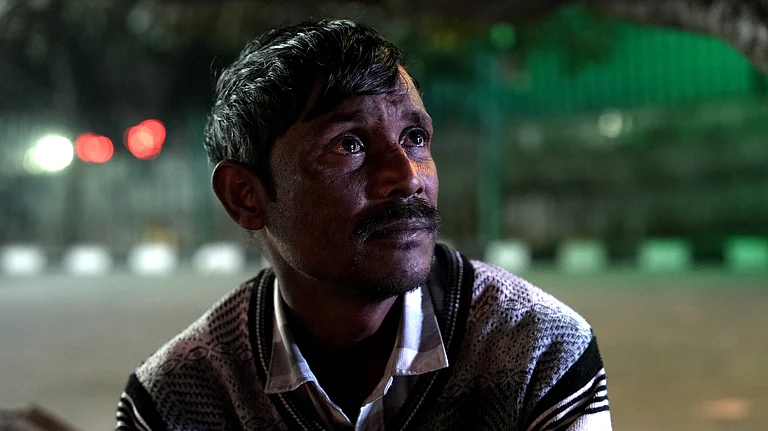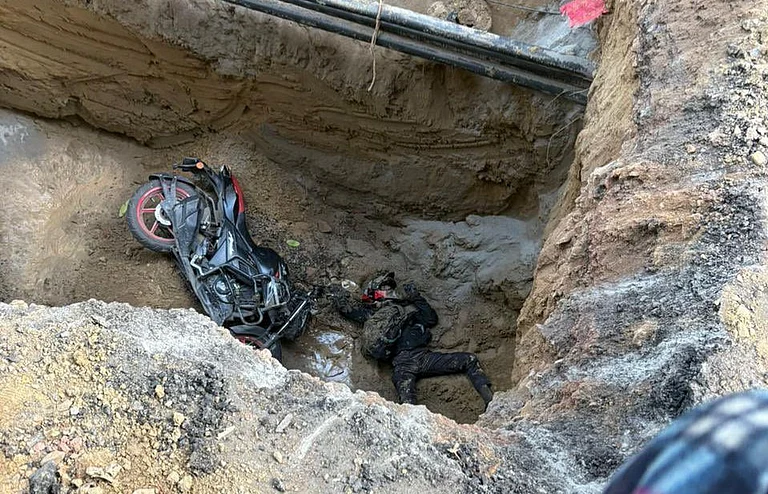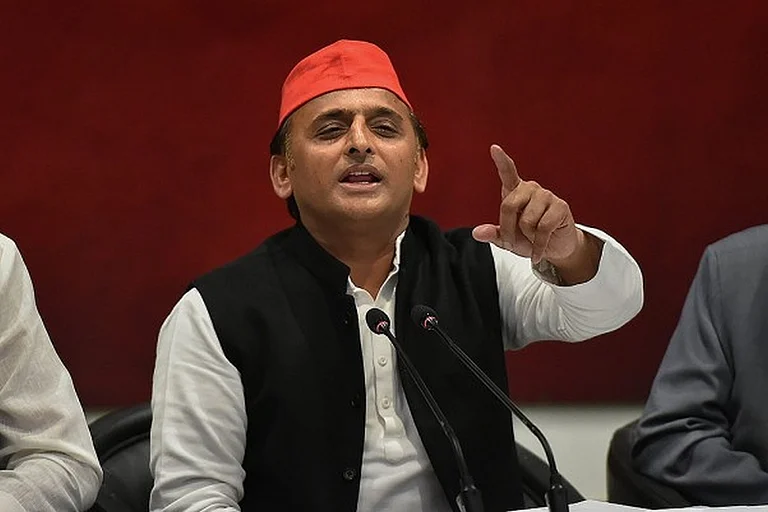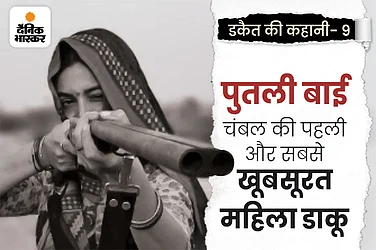
Summary of this article
This was first published in June 2022 as part of the 'Still I Rise' magazine issue
Growing up first in the confines of her father’s house and then in her husband’s, Nimbukali from the Sitapur district of Uttar Pradesh had never known what it was like to step out of the house and to be heard. Though not educated, Nimbukali was always curious about what was going on in the world and wanted to be part of it. But every time she tried to ask questions or protest against minor infractions, she was slapped and beaten into submission by her male relatives. “I would look at the outside world from my windows, not allowed to step out with no one to report the violence I faced daily,” Nimbukali recalls. Now in her late 40s, Nimbukali says those days are behind her. Today, she is one of 14 women who are part of the Nari Adalat committee of her district, through which she not only works for empowering women but also helps rural women come out of abusive marriages and stand on their own feet. “I will never be cowed down by a man in a position of authority again,” she tells Outlook.
Nari Adalat is a concept that was conceived in the 90s through the then central government-run Mahila Samakhya programme. Launched in 1988, the programme spread its roots across several states. In Uttar Pradesh, which continues to record a high incidence of gender-based violence (GBV) including domestic abuse and sexual crimes against women, the programme has been instrumental in reducing domestic violence in villages and creating consciousness and empowering women at district and block levels. The Nari Adalat is a parallel system of social justice that relies on women’s collectives to ensure equitable access to social and legal remedies for marginalised women.
Anupam, one of the founding members of the Nari Adalat’s Sitapur chapter, tells Outlook that through the model of community intervention adopted by Nari Adalat, she and her team have not only rescued countless rural women from abusive marriages, oppressive parents or financial abuse, but also encouraged a mindset of prevention across the 14 districts in which the Adalats are functional. “Most Nari Adalat appointees are survivors of violence themselves. Few of them have any educational qualifications,” Anupam says. Through the power of collective action and training, they are today well-versed in their rights and the laws that can be used to prosecute crimes against them.
“Through our workshops and community-level interventions, we encourage women to come out and talk about their problems. We found that many women themselves justified spousal beating. We worked to change this mentality,” Anupam says.
In a country where patriarchal traditions dictate not only women’s behaviour but also their ability to seek justice, ground-level initiatives like the Nari Adalat are instrumental in helping women get justice. Yet, in 2016, the central government discontinued the programme at the national level. In Uttar Pradesh, the Yogi Adityanath government ran the programme for two more years but stopped its funding in 2018, leaving about 800 Mahila Samakhya workers unemployed and countless rural women with no platform to turn to when they face domestic violence. In the absence of continued pressure from Nari Adalat members, whose mobility has been restricted due to the lack of state endorsement, cases of GBV have increased, not just in Sitapur but across UP. In some cases, women who had left behind abusive partners or homes had to return to their former abusers in the absence of financial support to raise their children.
A case in point is Phooljahan from Biswan block, who remained married to her abusive husband for years, before Mahila Samakhya members took the case to the Nari Adalat. The Adalat ruled that the couple be divorced. A police case of domestic violence was also filed under requisite laws. However, the husband kept coming out on bail to torment Phooljahan and her two children. With Mahila Samakhya being shut down, followed by the Covid pandemic in 2020, many like Phooljahan lost their incomes and had to return to their abusive spouses for survival. Now that Nari Adalats have become rarer, Phooljahan’s says her husband is once again emboldened, having taunted her about the women who used to support her in the past. Without the government’s backing through the Mahila Samakhya initiative, women and community leaders now have to bear the cost of such interventions themselves. “We get calls from across the district. Earlier, the programme would remunerate the costs of travel and stay for Nari Adalat members who would visit the victims’ homes and villages, and stay there for a few days to work out a community-level solution. Now, such costs have to be borne by the women themselves,” Anupam says. This means that while Nari Adalats are still being conducted across several districts (twice a month as per rules), the network of strong women leaders created by the Samakhya programme has started to weaken.

In rural India, police are often the last resort for victims of violence, especially Dalit women who form the core of Nari Adalats. “There are cases when women went to police stations with broken bones but were asked to return home. Cops don’t consider beatings by husbands or fathers unusual,” says Mayawati from Karaundiya block. This is not surprising, as findings from the latest National Family Health Survey (NFHS-5) show that over 79 per cent of the women from nearly 25,000 households interviewed who admitted to having faced domestic or spousal abuse, had said they did not raise their voice when they were assaulted or beaten. It also revealed that 44 per cent of women in the 15-19 age group, had agreed that some instances justified spousal abuse. Like being a bad cook or not prepping the child in time for school.
Nari Adalat members also help women get justice in cases of financial exploitation. “In one case, the victim had been stuck in an abusive marriage, and had left her gold with her brother for safekeeping,” Mayawati says. The brother, though, turned on the victim and refused to return the money. “Such financial abuse is also a kind of domestic violence. But there is hardly any awareness about it,” she adds.
Sushma, another member of the Nari Adalat, says many police officers don’t even know the laws that can be used to prosecute cases of GBV or sexual assault. “There was recently a case of a minor being raped in Kisama. The police officers at the station where we tried to lodge our complaint weren’t even aware of POCSO laws. It was only after we intervened that a case of rape of a minor was lodged,” says Sushma.
In recent years, the central government has come up with initiatives like setting up One Stop Crisis Centres for survivors of sexual or domestic violence using the Nirbhaya Fund that was set up after the 2012 Delhi gang-rape case. A helpline (181) has also been set up for women to report GBV and is being used in states and UTs like Delhi.
However, Ranjana Kumari, director of the Centre for Social Research in Delhi, claims the One Stop Crisis Centres have been slow to become operational in areas like Uttar Pradesh and Delhi. She adds that while these interventions are aimed to help survivors of violence, they don’t look at prevention. “A helpline might be useful when it comes to providing a platform to lodge a complaint. But how many women in patriarchal Indian villages have the agency to pick up the phone and complain? And why must all solutions come only after the crime has already happened? Prevention needs to be as much a part of the state’s response as rehabilitation,” Kumari adds.
Activists like Kahkashan Perween, who have long been associated with women’s violence prevention and rehabilitation programmes in UP, adds that programmes like Mahila Samakhya were important in creating these prevention measures. “Under these programmes, women have the ability to mobilise and form community-level solidarities that can help them deal with their problems at a local level, like negotiating cases at the panchayat level or putting pressure on police to be more proactive. Community solidarity was instrumental in creating fear among villagers, relatives and intimate partners of rural women against indulging in violence, as it imposed accountability on the criminals. No other scheme or programme has been able to do this,” Perveen, a former nodal officer of the Mahila Samakhya chapter in UP, adds.
Community-led interventions or dispute resolution systems have been implemented across several Indian states, and have registered successes in states outside Uttar Pradesh too. In West Bengal, for instance, the practice of shalishi—in which local community members mediate between warring parties on familial disputes or domestic abuse—is widely used by NGOs and women’s rights activists to help survivors of domestic abuse. Activists agree that a combination of community-led interventions and prevention measures, along with an effective network of service providers such as police, NGOs, arbitration platforms and rehabilitation providers, is essential to helping women stuck in difficult situations.
With the government pulling out of programmes like Mahila Samakhya, however, many—like the Nari Adalat members in UP—are doubtful about the future of communitarian interventions. Sitapur’s Anupam fears that if the government’s apathy continues, more women in rural areas will succumb to a cycle of silence and violence.
“In Sitapur, we try to help women as much as we can. We even spend money from our own pockets. But for how long?” Anupam asks. In a country that uses ‘Beti Bachao Beti Padhao’ as a convenient slogan against all gender-related criticisms, the statistics of intimate partner violence and domestic abuse may be an indicator of the failure of the State in providing the most basic of human rights—a safe space at home.


